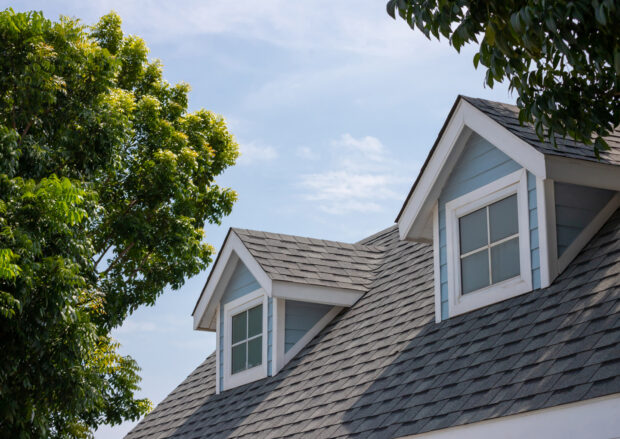Fortifying asphalt shingles and ensuring garage doors have a high wind rating are two ways to substantially reduce or prevent damage this hurricane season, according to the Insurance Institute for Business & Home Safety (IBHS).
Researchers identified the roof and garage doors as the areas of homes particularly vulnerable and most important to strengthen to withstand storms.
“The number one goal is to stop cascading damage,” said IBHS Chief Engineer Dr. Anne Cope. “When rain, wind and storm pressure enter a home, damage that starts out as relatively minor escalates quickly and often forces families out of their homes for extensive home repairs. That’s especially disheartening because we now know this is largely preventable.”
IBHS testing revealed that aging asphalt shingles can dislodge in winds as low as 60 mph. Once the roof cover is lost, rain can pour into a house through the gaps in the wood roof decking.
“Our research estimates the equivalent of nine bathtubs of water can enter a home for every inch of rain that falls on a traditional roof deck where space between the boards is exposed,” Cope explained. “The good news is there are four different ways to cover these gaps and reduce this risk by as much as 95 percent.”
IBHS also recommends inspecting garage doors to be sure they are labeled validating a wind rating of 130 mph or higher.
If a garage door fails, pressure builds inside the garage and pushes up on the roof and out against surrounding walls, often resulting in a cascade of structural damage to the entire building.
If a garage door is not labeled as wind resistant, it should be replaced or reinforced to provide needed protection.
“In an ideal world, homeowners wouldn’t have to worry about securing garage doors or upgrading roofs because their building code would ensure their home was safe and secure,” explained IBHS Managing Director for Standards and Data Analytics Dr. Ian Giammanco. “Incredibly, though, less than 35 percent of American communities have adopted and updated modern building codes.”
In the fifth edition of Rating the States, IBHS evaluates building code adoption, enforcement and contractor licensing in the 18 states along the hurricane coastline.
The report shows some states work to ensure homes are resilient against extreme weather, but many communities remain vulnerable as state or local jurisdictions fail to adopt or enforce modern building codes or allow their codes to lapse and become outdated. In fact, after being scored on a 100-point scale, there was a 73-point disparity between top-rated Virginia and lowest-ranked Delaware.
“While enforced, modern building codes provide community resilience, all homeowners can take actions now, before the next storm, to provide additional protection against severe weather,” explains Giammanco. “There are things you can do even for tropical storms, which have winds that wouldn’t ordinarily cause damage, such as securing loose items around your yard or trimming trees that may overhang your roof to reduce your risk of damage.”





















 Retired NASCAR Driver Greg Biffle Wasn’t Piloting Plane Before Deadly Crash
Retired NASCAR Driver Greg Biffle Wasn’t Piloting Plane Before Deadly Crash  Earnings Wrap-Up: AXIS Expanding Insurance Biz, Shrinking Re Book
Earnings Wrap-Up: AXIS Expanding Insurance Biz, Shrinking Re Book  Chubb CEO Greenberg on Personal Insurance Affordability and Data Centers
Chubb CEO Greenberg on Personal Insurance Affordability and Data Centers  20,000 AI Users at Travelers Prep for Innovation 2.0; Claims Call Centers Cut
20,000 AI Users at Travelers Prep for Innovation 2.0; Claims Call Centers Cut 